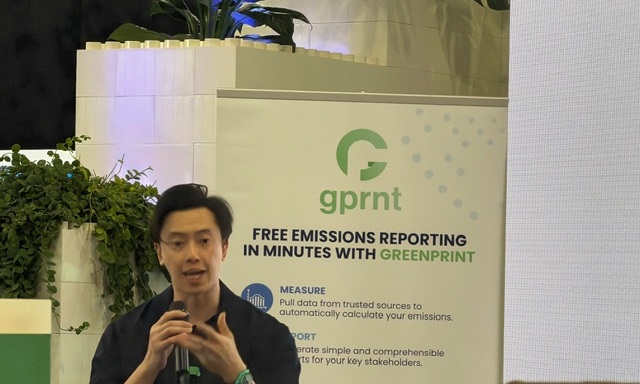SINGAPORE, November 12, 2025 — Singapore’s small and medium enterprises (SMEs) face a critical turning point in their sustainability transition, according to the 2025 SME Sustainability Barometer jointly released by Gprnt and PwC Singapore, with support from the Singapore Business Federation (SBF) and Sustainability Alliance (SA).
The inaugural study, which engaged 560 SMEs across 19 industries, found that while sustainability is increasingly on the business agenda, three in four SMEs have yet to embark on their decarbonisation journeys. Financial, manpower, and capability constraints remain the biggest barriers, even as customer expectations and green supply chain requirements intensify.

SMEs Falling Behind Despite Policy Push
Over 70% of surveyed SMEs have not accessed any form of government grant or sustainability-related assistance — a figure that surprised even the study’s organisers, given the breadth of available support. Many businesses cited uncertainty about eligibility, limited awareness, and the absence of clear short-term returns.
“SMEs must see sustainability as a business strategy, not a compliance burden,” said Ravi Menon, Singapore’s Ambassador for Climate Action. “Those who act early will gain competitive advantage as global supply chains shift towards low-carbon sourcing.”
Five Strategic Actions to Drive Change
The Barometer outlines five ecosystem-level actions to help SMEs translate sustainability into business outcomes:
- Build awareness of tangible business value through real case studies.
- Provide simple roadmaps to kickstart sustainability journeys.
- Expand successful “Queen Bee” programmes linking large corporates and SMEs.
- Promote cost-sharing and sector-based sustainability solutions.
- Develop a unified sustainability “passport” to improve recognition and market access.
These recommendations point to a growing consensus that SMEs need clearer market signals, structured incentives, and better coordination between policymakers and industry players to accelerate progress.
“When SMEs go green, they don’t just decarbonise — they future-proof their competitiveness,” said Lionel Wong, CEO of Gprnt. “We need to make sustainability both accessible and rewarding for small businesses.”
PwC Singapore’s Lee Bing Yi added that sustainability readiness must be embedded in long-term business strategy: “Sustainability represents an opportunity for growth and resilience. Collective action can lower barriers and build momentum for SMEs to take the first step.”
A Call to Action for Industry Leaders
Both the SBF and Sustainability Alliance have pledged to work with Gprnt and PwC to turn insights into concrete actions.
SBF CEO Kok Ping Soon stressed that sustainability cannot be postponed: “SMEs need to view decarbonisation as an investment — one that can reduce costs, enhance brand reputation, and open new markets.”
Equator Renewables Asia CEO Frank Phuan, representing SA, added that “closer collaboration and shared resources” are key to achieving meaningful scale across industries.
From Awareness to Action
With SMEs accounting for 99% of all enterprises in Singapore, their collective shift toward sustainability is essential for achieving national net-zero ambitions. The SME Sustainability Barometer serves as both a wake-up call and a roadmap — urging policymakers, financiers, and corporates to rally behind the sector that powers much of Singapore’s economy.
📄 Read the full report: https://www.gprnt.ai/resources/smesustainabilitybarometer


